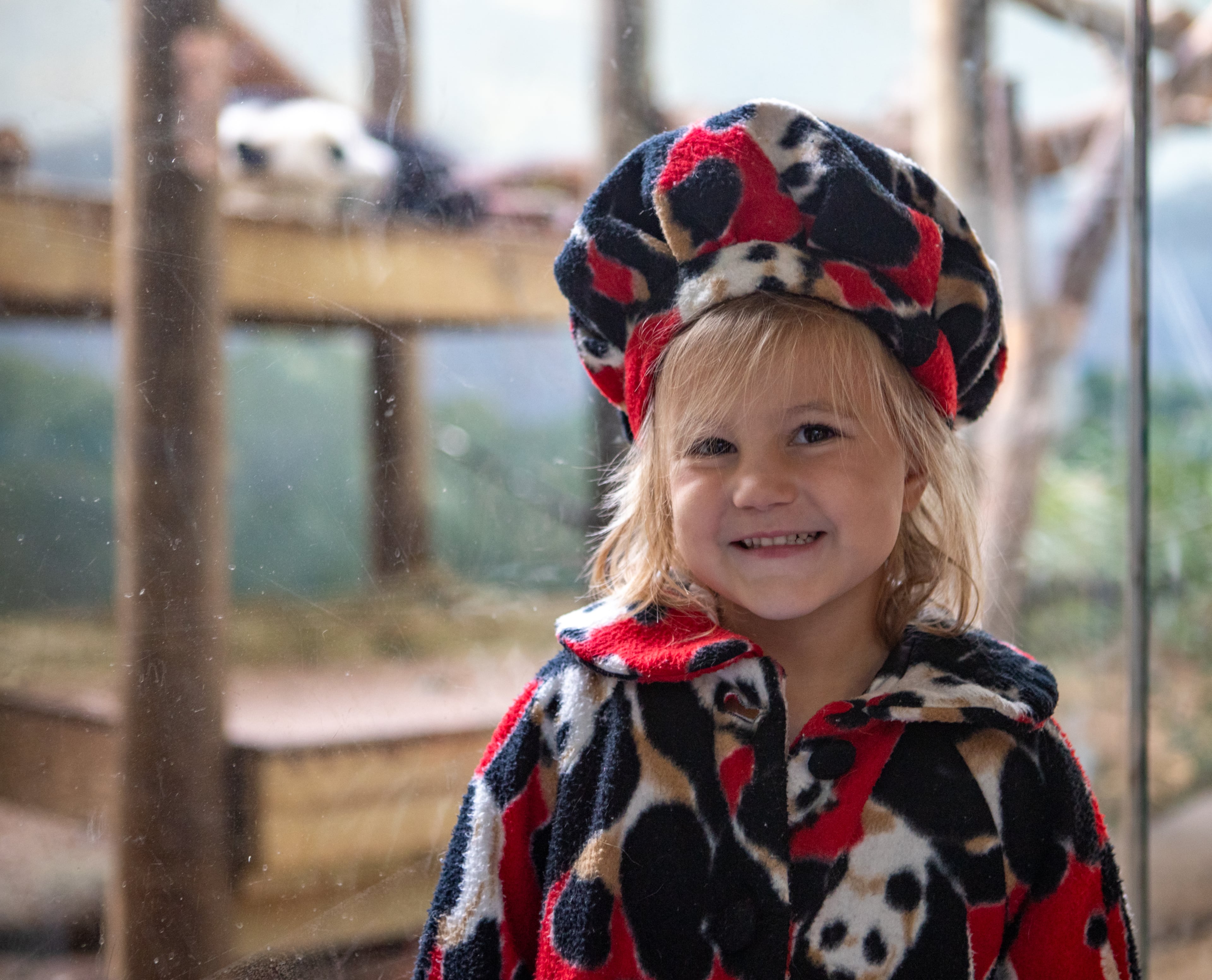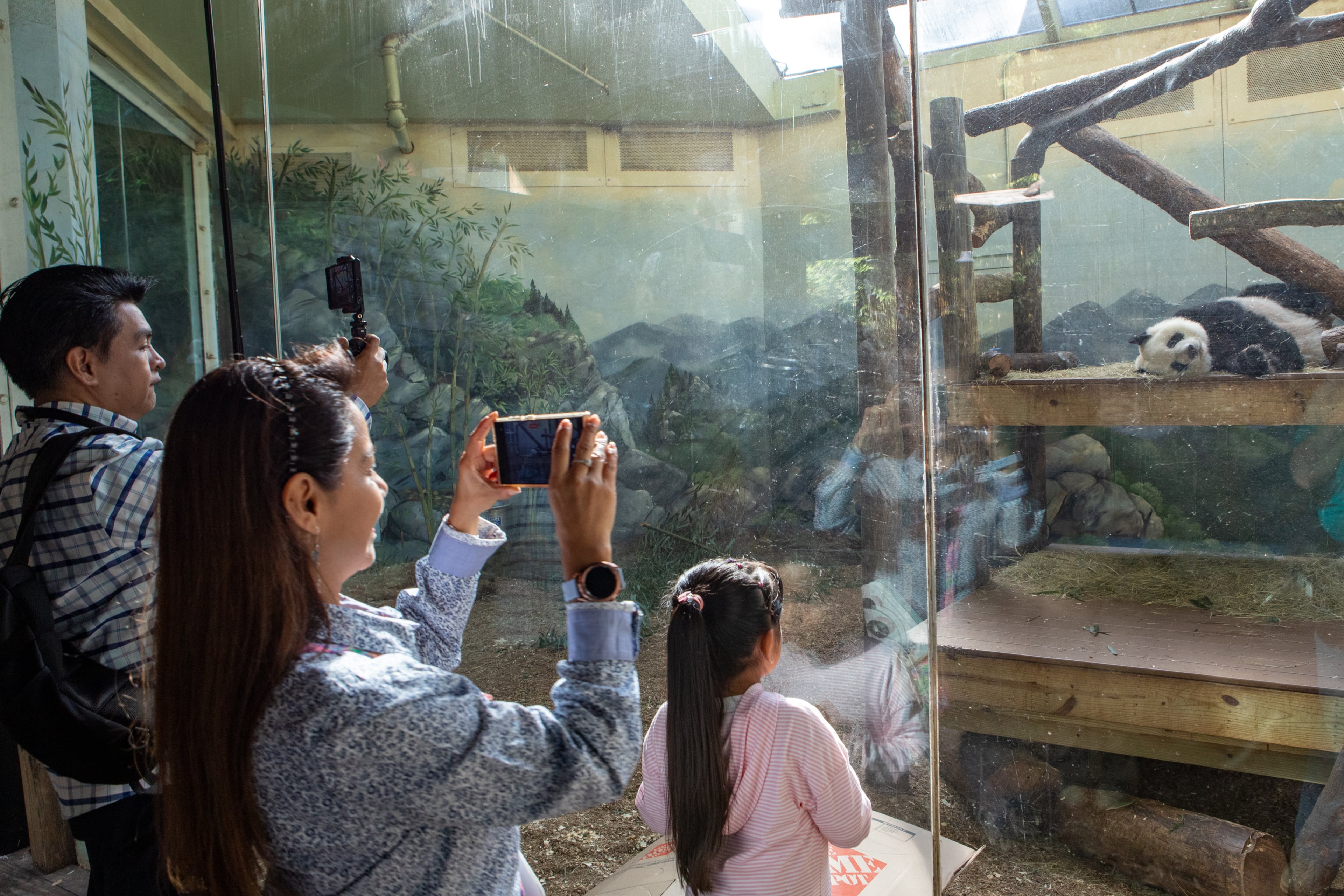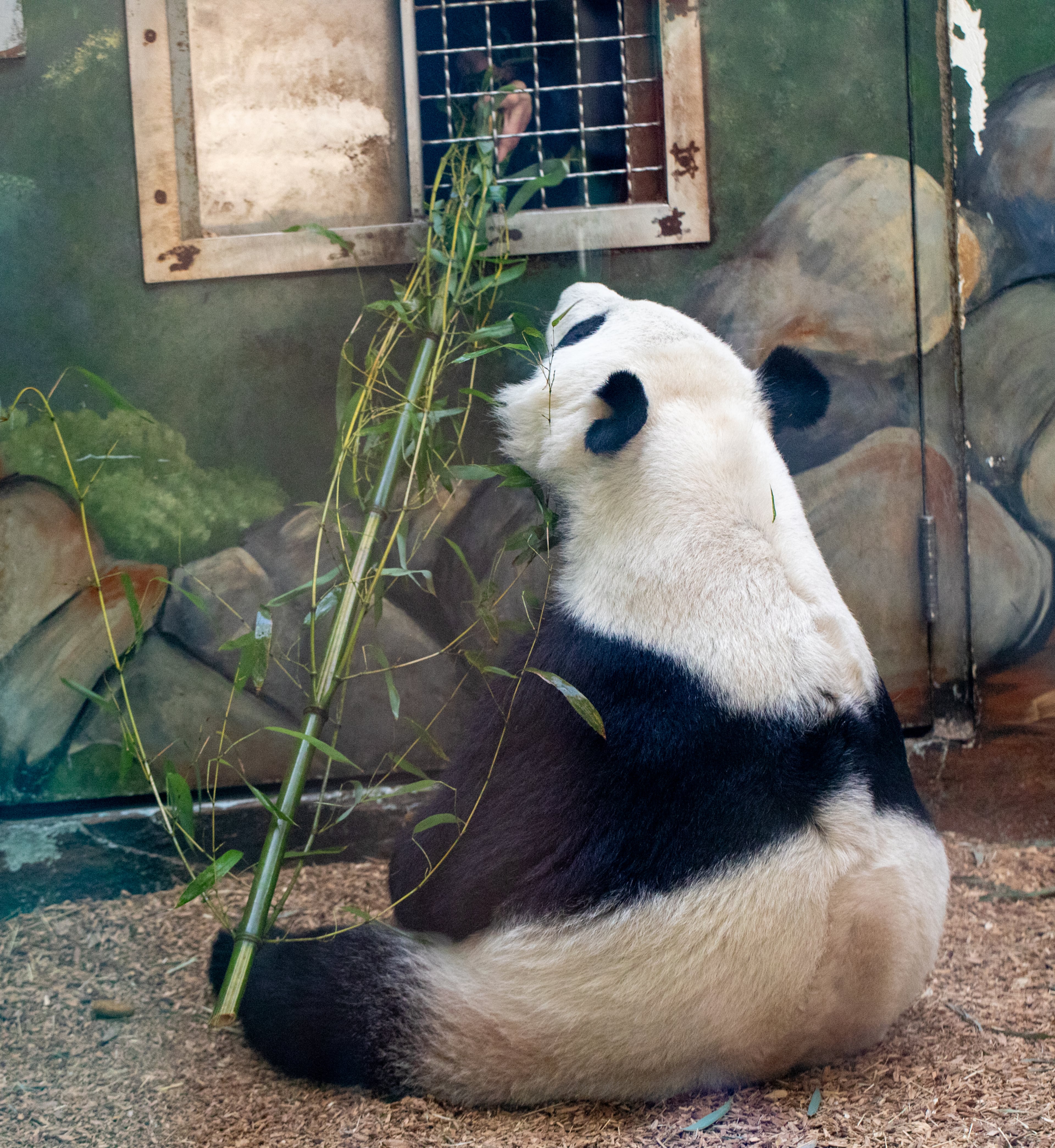Zoo Atlanta prepares for life without pandas




















Grace Sheng and her husband Evan Affinito drove three hours from Columbia, South Carolina, to wish Zoo Atlanta’s four giant pandas farewell this past Saturday.
At noon, they were greeted by a line that stretched several hundred feet all the way back to the rhino exhibit. They decided to gut it out for nearly two hours. Fortunately, the temperatures were in the 70s, the air dry and crisp. There was plenty of shade, and Zoo Atlanta employees walked the line holding birds, snakes and even a container with a tarantula to keep folks occupied.
“We became obsessed with panda cams during the pandemic,” Sheng said, including the 24/7 cameras trained on the pandas at Zoo Atlanta. “They are so cute.”
Sheng admitted that pandas are not exactly a rollicking species. They typically do just three things: eat, sleep and poop. “That’s what I like to do!” she said, only half joking. “They are entirely relatable.”

Zoo Atlanta has been in a fruitful partnership with the Chengdu Research Base of Giant Panda Breeding and the Chinese Association of Zoological Gardens for a quarter century, but the lease deal ends this month. Lun Lun and Yang Yang have been at the zoo for 25 of their 27 years and over that time, the pair successfully bred seven children, five of whom are already back in China. They will join their two youngest ― 8-year-old twins Ya Lun and Xi Lun ― on a private plane to Chengdu in a matter of days.
The zoo has been encouraging people to say goodbye sooner rather than later. A special “Panda-Palooza” farewell party Saturday drew more than 9,300 people, double a normal fall Saturday. Employees handed out “I’m a Panda fan” fans at 10 a.m. and all 1,500 were gone by 11:30 a.m. Kids received temporary panda tattoos and wrote farewell notes. A person dressed in a panda outfit was a popular draw.

At the panda exhibit itself, OGs Lun Lun and Yang Yang were on display. It was too warm for the pandas to cavort in the outdoor space so each panda resided in one of two climate-controlled spaces cooled to 65 degrees featuring multiple sleeping areas and branches to climb. Giant pandas are largely solitary and territorial, so their two children stayed in the back area outside of public view.
At 10:30 a.m. Saturday, both pandas were lying on their side facing patrons eager to snap photos. Yang Yang showed a bit more verve, stretching and yawning. At 11:15 a.m., he eagerly ventured toward the door where a keeper soon began feeding branches of bamboo into his space. At noon, Lun Lun awoke and began walking around.
“Keep moving forward so everyone can see the pandas,” said Andrew Hogan, a zoo animal immersion supervisor on a speaker to the passersby. “Thank you for your patience.”
He noted some of his favorite facts about pandas. Each panda consumes 30 to 40 pounds of bamboo per day. Zoo Atlanta employs multiple full-time bamboo hunters who scour metro Atlanta to collect at least 300 pounds of bamboo each day for the pandas, who are picky and will often consume just a fraction of what they’re given. “They also poop up to 100 times a day,” Hogan said with a grin.
Megan Locke, a grants management specialist for the U.S. Forest Service who grew up in Atlanta and lived there until 2016, was a zoo member in the late 1990s when she decided to contribute money for a campaign to bring pandas to the zoo. “The place was falling apart,” she recalled. “I thought bringing the pandas in would bring them more money. I felt from a marketing standpoint, the zoo needed that zip.”

On Saturday, Locke returned to Zoo Atlanta from her current home in Clinton, South Carolina, bringing her daughter Rebecca Hitt and 8-year-old granddaughter Aubrey to wait in line. From everything Locke could see, the panda program has been a “resounding success. I’m pleased I was part of it all. I came to say goodbye.”
For the Zoo Atlanta employees, the farewell is extra bittersweet.
“We certainly understand why they need to go back,” said Sam Rivera, the zoo’s vice president of animal health, who will fly back to China with them along with two zookeepers. “But it’s going to be tough. It’s sad and very emotional. What makes it easier for me is that they are going to a great facility.”
Rivera has been at the zoo since Lun Lun and Yang Yang arrived as children. “We haven’t had significant medical issues with either of them,” he noted, although they are considered geriatric for pandas. “Lun Lun doesn’t show her age. She still climbs the play structures like a teenager.”

Raymond King, the zoo’s president and chief executive since 2010, said he has regularly visited the pandas at least once a week.
“It’s always a pleasure,” he said. “After a frustrating budget meeting, I can go there and relax.”
He admits it will be jarring to see the space empty. “Pandas have a unique status,” he noted. “People come from all over the world to see them. You look at them and you want to cuddle them. Even watching them eat bamboo is entertaining.”
Zoo Atlanta has contributed $17 million over 25 years to panda conservation work in China, which has built more than 65 panda reserves. The panda’s status was upgraded from endangered to vulnerable in 2016 by the International Union for Conservation of Nature.
Over the years, Zoo Atlanta keepers have interacted regularly with counterparts in Chengdu, sharing information about panda medical care and behavioral research. “It’s been a multifaceted partnership,” King said.
The pandas didn’t entirely turn around the zoo’s financial fortunes. The zoo was still losing money 10 years after they arrived. It wasn’t until King took over in 2010 that the zoo was able to find its financial footing and is now consistently in the black. He’s a longtime SunTrust bank executive with no background in managing zoos, but he has deep connections in the business community that helped boost fundraising.
“We have almost a new zoo compared to 1999,” King said, noting the new reptilian center in 2015 and the $50 million African Savanna habitat that opened in 2019.
King said there are no specific plans yet on what to do with the real estate left behind at the zoo by the pandas but he said he hopes Atlanta will get pandas again. The San Diego Zoo returned pandas in 2019 but received two new ones earlier this year. The National Zoo in Washington, D.C., also ended a loan agreement in 2023 but China quickly agreed to provide them more later this year.


